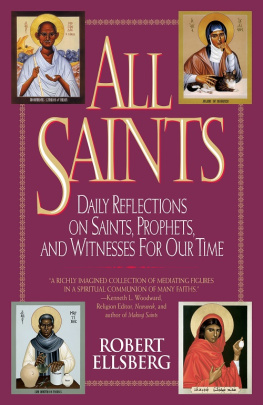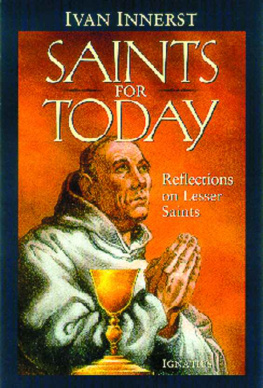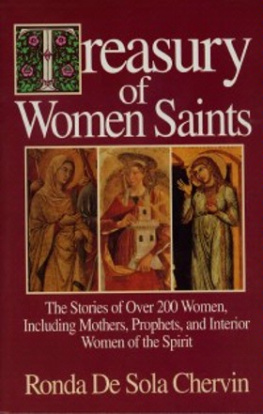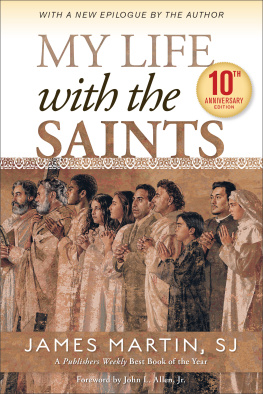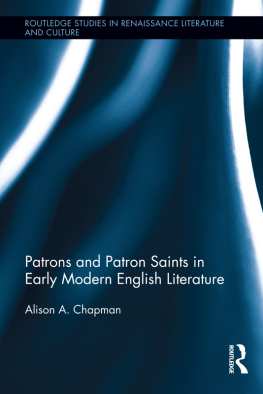Enzo Lodi - Saints of the Roman Calendar: Including Feasts Proper to the English-Speaking World
Here you can read online Enzo Lodi - Saints of the Roman Calendar: Including Feasts Proper to the English-Speaking World full text of the book (entire story) in english for free. Download pdf and epub, get meaning, cover and reviews about this ebook. year: 1993, publisher: Saint Pauls/Alba House, genre: Religion. Description of the work, (preface) as well as reviews are available. Best literature library LitArk.com created for fans of good reading and offers a wide selection of genres:
Romance novel
Science fiction
Adventure
Detective
Science
History
Home and family
Prose
Art
Politics
Computer
Non-fiction
Religion
Business
Children
Humor
Choose a favorite category and find really read worthwhile books. Enjoy immersion in the world of imagination, feel the emotions of the characters or learn something new for yourself, make an fascinating discovery.

Saints of the Roman Calendar: Including Feasts Proper to the English-Speaking World: summary, description and annotation
We offer to read an annotation, description, summary or preface (depends on what the author of the book "Saints of the Roman Calendar: Including Feasts Proper to the English-Speaking World" wrote himself). If you haven't found the necessary information about the book — write in the comments, we will try to find it.
Enzo Lodi: author's other books
Who wrote Saints of the Roman Calendar: Including Feasts Proper to the English-Speaking World? Find out the surname, the name of the author of the book and a list of all author's works by series.
Saints of the Roman Calendar: Including Feasts Proper to the English-Speaking World — read online for free the complete book (whole text) full work
Below is the text of the book, divided by pages. System saving the place of the last page read, allows you to conveniently read the book "Saints of the Roman Calendar: Including Feasts Proper to the English-Speaking World" online for free, without having to search again every time where you left off. Put a bookmark, and you can go to the page where you finished reading at any time.
Font size:
Interval:
Bookmark:
SAINTS OF THE ROMAN CALENDAR
Visit our web site at
www.albahouse.org
(for orders www.stpauls.us)
or call 1-800-343-2522 (ALBA)
and request current catalog

Library of Congress Cataloging-in-Publication Data
Lodi, Enzo.
[I santi del calendario romano: English]
Saints of the Roman calendar : including feasts proper to the English-speaking world/Enzo Lodi; translated and adapted by Jordan Aumann. Updated.
p. cm.
Translation of: I santi calendario romano.
ISBN 978-0-8189-1317-4
1. Christian saints Biography. 2. Catholic Church Liturgy. I. Title.
BX4655.2.L63513 1992
263.98dc20 92-20261
CIP
Nihil Obstat
Dennis R. Zusy, OP
Socius and Vicar Provincial
Imprimatur
Donald J. Goergen, OP
Prior Provincial
Produced and designed in the United States of America by the
Fathers and Brothers of the Society of St. Paul,
2187 Victory Boulevard, Staten Island, New York 10314-6603
as part of their communications apostolate.
ISBN 10: 0-8189-1317-7
ISBN 13: 978-0-8189-1317-4
Copyright 2012 by the Society of St. Paul / Alba House
Printing Information:
CurrentPrinting - first digit 1 2 3 4 5 6 7 8 9 10
Year of Current Printing - first year shown
2012 2013 2014 2015 2016 2017 2018 2019
TABLE OF CONTENTS
In recent years there has been a revival of interest in the cult of the saints, as is evident from the ever-increasing number of books that deal with the biographies, spirituality and writings of the saints. In the search for new forms and models of holiness in our pluralistic and multicultural society, one cannot ignore the great figures who throughout the centuries have given vivid witness to the holiness of the Church. Neither can one ignore the socio-anthropological influence of the saints, since the choice of heroes, models and leaders can have a lasting effect on the development of ones personality. Of course, the hero and model par excellence is Jesus Christ, and the Christian life consists essentially in the following and imitation of Christ.
The cult of the saints began with the veneration of the early martyrs, who followed Christ to the point of sharing in his bloody sacrifice on Calvary. Then, when the persecutions of the Church came to an end, the ascetics replaced the martyrs as exemplars of the perfection of charity. The veneration of the saints had as its primary purpose to provide models of the Christian life, in accordance with the dictum of St. Ambrose: The life of the saints is the norm of life for all others. However, in the early Church the veneration of the martyrs was primarily for the purpose of intercession. Consequently, many of the faithful looked to the saints as protectors in times of calamity or helpers in times of prosperity. Thus, one would usually hear of a long list of miracles that occurred at the tombs or shrines of the saints. This eventually led to certain superstitious practices that were vehemently denounced by the Protestant reformers. They did not deny the exemplary value of the saints as models for imitation; but they did deny the saints power of intercession. Consequently, the Council of Trent advised bishops as follows: They should instruct the faithful carefully concerning the intercession and the invocation of the saints, the honor due to their relics, and the lawful use of images; they should teach the faithful that the saints, reigning together with Christ, pray to God for men; it is a good and useful thing to invoke the saints humbly and to have recourse to their prayers and to their efficacious help to obtain favors from God through his Son Jesus Christ our Lord who alone is our Redeemer and Savior (Session XXV).
Even if the Scriptural basis for the cult of the saints should prove to be of little weight, it is certainly a doctrine of faith that we profess in the Credo: I believe in the communion of saints. In the Byzantine eucharistic liturgy the celebrant says holy things to the saints. Moreover, tradition attests to the fact that devotion to the saints was practiced in the early Church in the 2nd century, when Christians visited the tombs of the martyrs on the anniversary day of their death. That cult comprised three elements: (1) the gathering of the local Christian community; (2) on the anniversary day of the martyrdom (dies natalis) or burial (depositio); (3) the celebration of the Eucharist. But the cult of the saints was never allowed to obscure the absolute primacy of the paschal mystery of Christ. Hence we read in Vatican II s document on the liturgy: The Church has also included memorial days of the martyrs and other saints in the annual cycle. By celebrating their anniversaries, the Church proclaims the achievement of the paschal mystery in the saints who have suffered and have been glorified with Christ. She proposes them to the faithful as examples who draw all men to the Father through Christ, and through their merits she begs for Gods favor (Sacrosanctum Concilium, n. 104). In fact, Scripture states that all those who are called saints are called to share in the holiness of God (Heb 12:10); for that reason St. Paul could say: You are fellow citizens of the saints and members of the household of God (Eph 2:19). According to the traditional teaching of the Church, the People of God should be the holy People of God, and the Second Vatican Council reiterated this teaching (cf. Lumen Gentium, nos. 40-41).
The saints are also, in a certain sense, a prolongation of the sacred humanity of Christ because they fill up what is lacking in the sufferings of Christ for the sake of his body, the Church (Col 1:24). All together they represent the total Christ, for although Christs human nature is perfect and inimitable, it is nevertheless limited in manifesting the entire infinite mystery of the Word that was made flesh. Like ourselves, the saints belong to the Mystical Body of Christ, and in union with them we offer the eucharistic sacrifice (In union with the whole Church, says the Roman Canon of the Mass). Having gone before us in this life, they can help us unite ourselves to Christ, as was affirmed by the Second Vatican Council: Exactly as Christian communion between men on their earthly pilgrimage brings us closer to Christ, so our community with the saints joins us to Christ. It is most fitting, therefore, that we love those friends and coheirs of Jesus Christ who are also our brothers and sisters and outstanding benefactors, and that we give due thanks to God for them. Every authentic witness of love, indeed, offered by us to those who are in heaven tends to and terminates in Christ, the crown of all the saints, and through him in God who is wonderful in his saints and is glorified in them (Lumen Gentium, no. 50).
Our modern secularistic culture has lost the clear concept of the holy in relation to the sacred. In fact, some persons would call ours a post-sacred age. The reason for the confusion is that the word holy, which is intimately related to the paschal mystery of Christ, has been identified with the mysterious and esoteric or the numinous aspect of the sacred as found in some religions. The concept of the sacred that is limited to the reaction of individual persons to God and in total opposition to the profane has never been accepted in Catholic teaching.
The religious vacuum that has been created in modern society is compensated for by a new sacralization, namely, that of the great myths of the social collectivity. In any case, there is an interest in and a search for the sacred, and that can serve as a disposition for accepting the faith. Eventually it can open the way to an authentic sanctity which is nothing more or less than the total and free acceptance of the divine message.
Next pageFont size:
Interval:
Bookmark:
Similar books «Saints of the Roman Calendar: Including Feasts Proper to the English-Speaking World»
Look at similar books to Saints of the Roman Calendar: Including Feasts Proper to the English-Speaking World. We have selected literature similar in name and meaning in the hope of providing readers with more options to find new, interesting, not yet read works.
Discussion, reviews of the book Saints of the Roman Calendar: Including Feasts Proper to the English-Speaking World and just readers' own opinions. Leave your comments, write what you think about the work, its meaning or the main characters. Specify what exactly you liked and what you didn't like, and why you think so.


